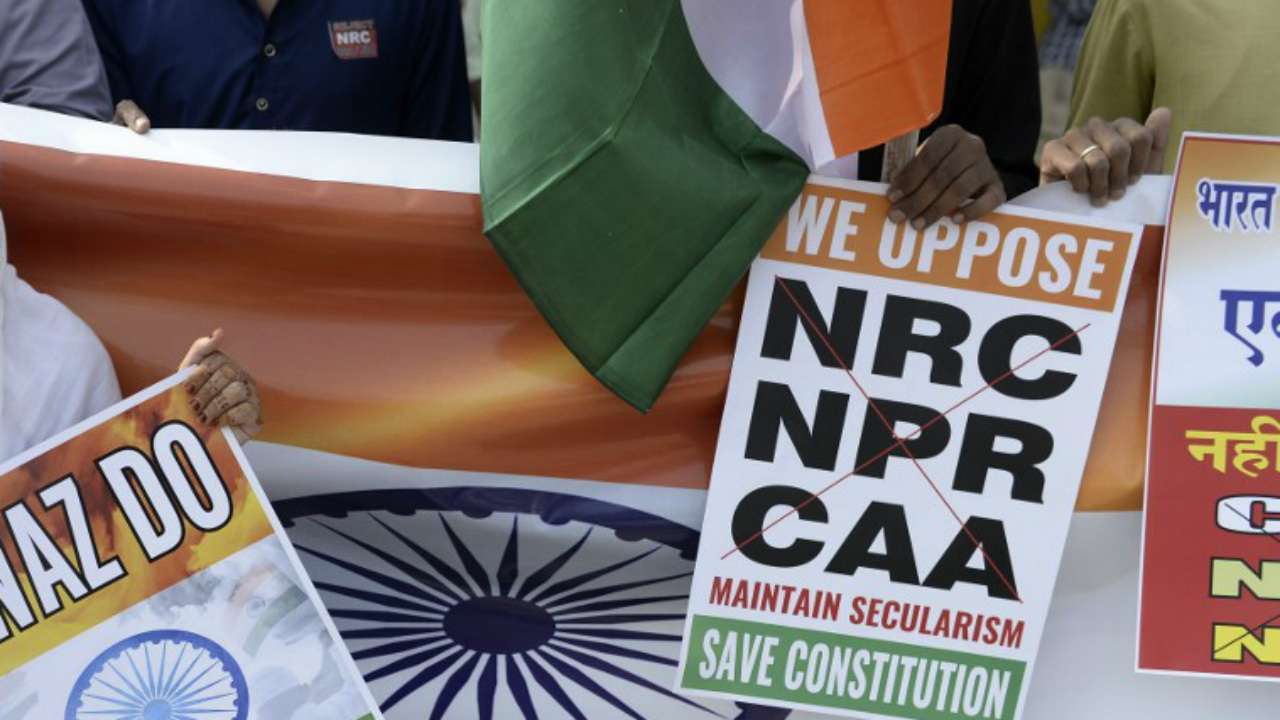'Countries of particular concern': On religious freedom, USCIRF recommends India be placed with Pakistan, Saudi Arabia
This is the first time since 2004 that USCIRF has recommended India as a Country of Particular Concern.

Representational image
An American body on international religious freedom on Tuesday asked the State Department to designate India, along with 13 other nations including Pakistan and Saudi Arabia, as "countries of particular concern", alleging that religious minorities are under increasing assault here.
The US Commission for International Religious Freedom (USCIRF) has cited the recently passed Citizenship Amendment Act and the abrogation of Article 370 among other reasons to make the recommendation.
While nine of these countries - Myanmar, China, Eritrea, Iran, North Korea, Pakistan, Saudi Arabia, Tajikistan and Turkmenistan - were designated as CPCs in December 2019, India, Nigeria, Russia, Syria, and Vietnam are the new recommendations from the USCIRF in its annual report released on Tuesday.
India rejected the report in a strongly-worded statement, with the Ministry of External Affair (MEA) spokesperson calling the USCIRF an "organisation of particular concern."
"“We reject the observations on India in the USCIRF Annual Report. Its biased and tendentious comments against India are not new. But on this occasion, its misrepresentation has reached new levels. It has not been able to carry its own Commissioners in its endeavour. We regard it as an organization of particular concern and will treat it accordingly," MEA spokesperson Anurag Srivastava said.
In the 2020 edition of its annual report on International Religious Freedom, the USCIRF said that India took a sharp downward turn in 2019. "The national government used its strengthened parliamentary majority to institute national-level policies violating religious freedom across India, especially for Muslims. Most notably, it enacted the Citizenship (Amendment) Act, which provides a fast track to Indian citizenship for non-Muslim migrants from Afghanistan, Bangladesh, and Pakistan already residing in India," it said.
"According to government officials’ statements, this law is meant to provide protection for listed non-Muslim religious communities—but not for Muslims—against exclusion from a nationwide National Register of Citizens and the resulting detention, deportation, and potential statelessness. The national and various state governments also allowed nationwide campaigns of harassment and violence against religious minorities to continue with impunity, and engaged in and tolerated hate speech and incitement to violence against them. Based on these developments, in this report USCIRF recommends CPC designation for India," the report said.
However, two of the nine members have expressed their dissent over the USCIRF recommendation to place India in the CPC and a third member also expressed his personal view on India.
"I must dissent from the decision of my fellow Commissioners to recommend India, the world's largest democracy, for designation as a 'country of particular concern', or CPC, placing India in a gallery of rogue nations in which it does not belong," Commissioner Gary L Bauer wrote in his dissent note.
"India does not belong to the same category as authoritarian regimes like China and North Korea. India is the largest democratic nation in the world, where the CAA has been challenged openly by the opposition Congress Party and lawmakers, civil society, and various groups," said Commissioner Tenzin Dorjee.
"I am gravely concerned that political and inter-communal strife will be further exacerbated by religious tensions, yet I am also heartened that India remains the world’s largest democracy, governed by a pristine constitution," Commissioner Johnnie Moore said.
The CAA and lynchings by alleged cow vigilantes form the major argument for placing India in the category of countries like China, Syria, Pakistan and North Korea. The abrogation of article 370 in Muslim-majority Jammu and Kashmir and subsequent lockdown have also been cited in the report.
The report also cites the recent communal violence in Northeast Delhi where over 50 people were killed.
"During 2019, discriminatory policies, inflammatory rhetoric, and tolerance for violence against minorities at the national, state, and local level increased the climate of fear among non-Hindu communities. After the reporting period, India continued on this negative trajectory," the report said.
"In February 2020, three days of violence erupted in Delhi with mobs attacking Muslim neighbourhoods. There were reports of Delhi police, operating under the Home Ministry’s authority, failing to halt attacks and even directly participating in the violence. At least 50 people were killed," it added.
Among recommendations to the US government, the USCIRF has said, "Impose targeted sanctions on Indian government agencies and officials responsible for severe violations of religious freedom by freezing those individuals’ assets and/or barring their entry into the United States under human rights-related financial and visa authorities, citing specific religious freedom violations."
It has also asked the US government to strengthen the US Embassy’s and consulates’ engagement with religious communities, local officials, and police, especially in regions impacted by religiously motivated violence.
Established by the US Government in 1998 after the inaction of the International Religious Freedom Act, recommendations of USCIRF are non-binding to the State Department.
Traditionally, India does not recognize the view of the USCIRF and has denied visas to members of the USCIRF for over a decade. India had earlier said that the body has chosen to be guided only by its biases on a matter on which it has no locus standi.
Discussing the report on India, USCIRF Chair Tony Perkins said, "We are seeing impunity for violence by non-state actors committed against religious minorities.”
Vice Chair Nadine Maenza said the CAA “potentially exposes millions of Muslims to detention, deportation, and statelessness when the government completes its planned nationwide National Register of Citizens.”
This is the first time since 2004 that USCIRF has recommended India as a Country of Particular Concern.